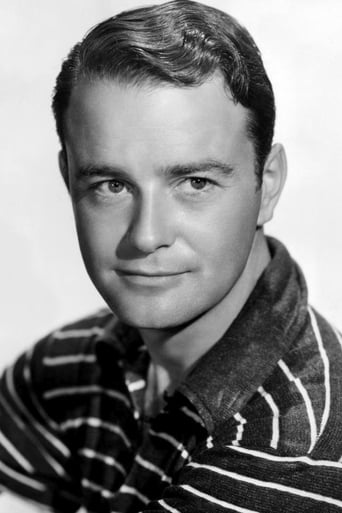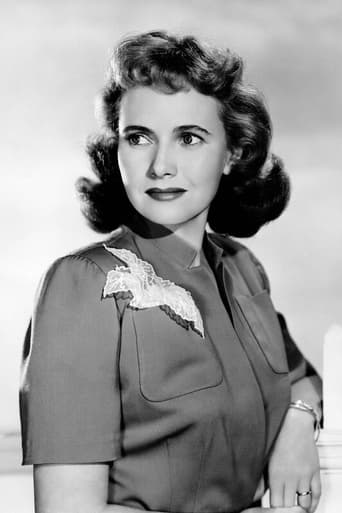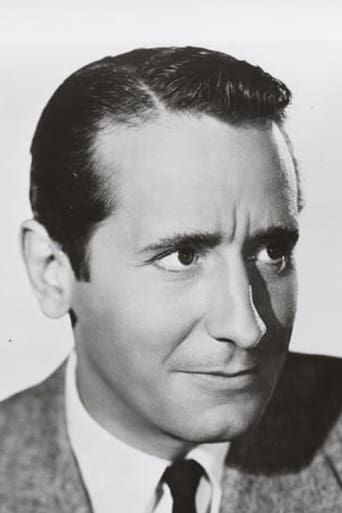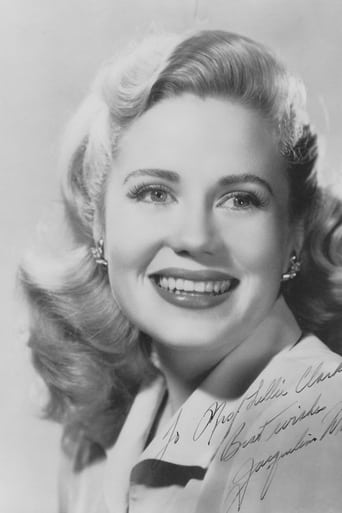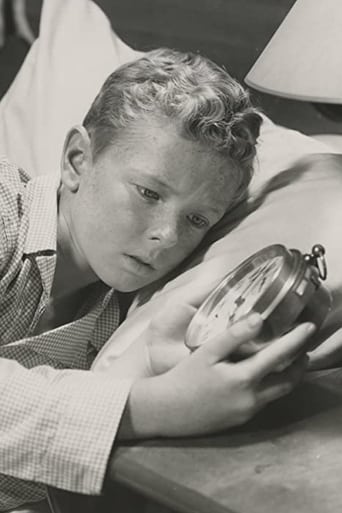ReaderKenka
Let's be realistic.
Beanbioca
As Good As It Gets
ThrillMessage
There are better movies of two hours length. I loved the actress'performance.
Fatma Suarez
The movie's neither hopeful in contrived ways, nor hopeless in different contrived ways. Somehow it manages to be wonderful
DigitalRevenantX7
Former oil manager turned rancher Lindley Vanner is holed up in a Mexican priest's home with the Mexican police surrounding it – a fugitive from the law for murder. He tells his story to the priest. Vanner was working on a Mexican oil field in 1937 when he sets out to track down the bandit accused of stealing his company's payroll. He corners the suspect but accidentally shoots him dead due to miscommunication. Overcome with grief, he quits his job & heads to the dead man's town for a change of scenery. Bluffing his way into the widow's home, he tries to make amends by taking on various repair jobs on the ranch. The widow discovers his true identity but falls in love with him anyway. The pair get married. But when Vanner discovers that his victim was in fact innocent & had actually survived the gunshot wound he inflicted, killed instead by a guard who was the real thief during interrogation, Vanner attempts to track the real thief down & get him to confess. He succeeds in finding the culprit but again kills him in self defence. Now he is wanted by the Mexican police.The Capture is a modern-day (for the time) Western made at a time when the genre was getting stuck in the routine of the times & was getting more & more mediocre. It wasn't until the Italians got involved that the genre received a much-needed boost.The film is essentially about the emotional impact that killing someone – particularly by somebody who wasn't a soldier or police officer – inflicts on the person who does the killing. The death is accidental but the person is stuck with an emotional scar of that very act that compels them (well, most of the time) to make amends, well, if the person is honest & has morals, that is (most murderers these days tend to regard themselves in the right or have some severe mental defects that make them immune to grief). It is because of this plot angle that I rank the film as "mediocre" instead of "disappointing" since the rest of the film is almost sunk by poor writing. The idea of making the hero an everyday working stiff is a mediocre idea because the reason people go to the movies to watch is because they want to see larger-than-life characters or interestingly complex & unusual characters, not ordinary people who don't have anything to offer for them. Cinema is at its heart a medium of pure escapism (which is why I prefer science fiction & horror films over mediocre Westerns such as this) & films like The Capture don't do much to add to that medium – instead they detract & waste resources. The actors do a decent job of inhabiting their roles but are wholly unremarkable. Plus, the film tends to get boring in the middle section with Lew Ayres & Teresa Wright interacting – their characters loathe each other but very quickly fall in love in another of those old-fashioned Instant Romances, only to find their marriage threatened by the exposure of the fact that the dead husband was innocent of the crime that ultimately killed him. Ayres' transition from everyday Joe to tough guy is a bit unrealistic, although he acquits himself admirably.
Rainey Dawn
I got this film from the Dark Crimes 50-pack collection: It is not what I would call a "Dark Crime" film... this is a western. If this film is a "dark crime" then so are all other westerns.The film is just okay. Nothing special to see here. It's told in flashback from our oil man cowboy to the priest. It's about a guy that runs an oil field, someone took some money that they were suppose to pay the workers with and one man is blamed for doing it. So our oil man who dubs as a cowboy goes after the guy, shoots the guy to quickly and the guy slowly bleeds to death internally. Next our oil cowboy sees a woman, falls for her the moment he sees her, finds out it's the dead man's wife and he goes after her. She is running a ranch and runs an ad in the paper for help since her husband is dead - and she hires the oil man cowboy to help her. Long story short, they marry - then he is on the run again for the murder of her dead husband, blah blah blah, more stuff happens and he ends up with a priest and the law after him and ends up a in a shoot out at the priest's place.Really not a all that bad of a film but it's not all that great either.3/10
MartinHafer
"The Capture" is the most frustrating story to watch, as it is a pretty good film....through the first 3/4 of the movie. Then, when you are invested in the darn thing, it ends oh so stupidly....very stupidly. As a result, I am doing something I rarely do--telling you not to bother with this one! The film begins with Lew Ayers on the run somewhere in rural Mexico. When he meets up with a priest (Victor Jory), he begins telling him the story of how he got to be on the lam from the law. It seems that some time ago, Lew was reluctantly goaded into helping look for a man accused of stealing the company's payroll. On his own, he catches up to the guy and accidentally kills the suspect. While he's considered a hero, he can't live with himself and quits his job--even refusing the reward money. So far, so good--I liked the story and the idea that he felt so torn apart by this. While it strained disbelief A LOT, I even got into the film when Ayers tracked down the dead guy's widow (Teresa Wright) and young son and moved in as a hired hand.Late in the film Ayers gets the idea that the man he killed was not really guilty and investigates. This is a great idea--and a great way to throw the plot up on its end. HOWEVER, when he has a big confrontation with his ex-boss, the plot goes straight down the toilet. The last 20 minutes of the film make no sense at all--especially when he kills the man in self-defense yet runs away and makes himself look 100% guilty! Why do this--he seemed to have a good case to prove that his ex-boss was a crook and the gun the ex-boss tried to use on him was ample evidence he was defending himself. And from there, it only gets worse...much, much worse. You simply cannot believe the story at all and it made me mad by the time the stupid final showdown occurred.Okay acting and it was apparently written by lemurs! There just isn't enough in the first half to make it possible to ignore the last!
GManfred
The Capture tries mightily but in the end it suffers from a meandering script which is too full of plot devices and contrivances. The result is shocking as it was directed by the great John Sturges, who directed some of the best action pictures ever made, including "The Magnificent Seven". It is a picaresque type of a story which might be called " the Adventures of a Guilt-Ridden Oilman". Lew Ayres in the lead role bounces from place to place, falling in love with the wife of a man he has killed while searching for the real payroll thief. As he is on the lam in the midst of his guilt trip, he is eventually discovered and must hit the road again. Eventually he ends up in the same straits as the man he has killed, even incurring an identical injury as the dead man.....Sorry. I dozed off trying to recount the drab, preposterous proceedings. At best, it is a curiosity which is about 20 minutes too long and stretches the credulity of the viewer to the breaking point. Lew Ayres was good and Teresa Wright was excellent, but even so a question arises; Did they do drugs while writing scripts in the 40's?
